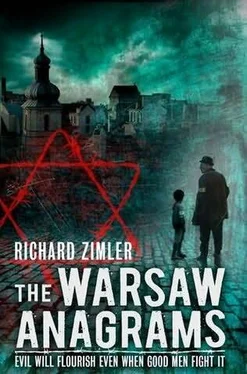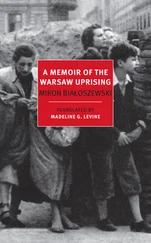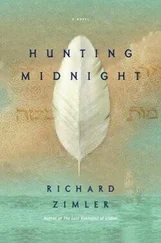‘The worst that can happen is that the Nazis will shoot us,’ Izzy once told me.
How many of us are able to live our lives knowing that there are far more terrible things than dying with a German bullet in your chest or a noose around your neck?
Those who can’t will always hate those of us who can. We know that now, you and I.
If you make it out of here, Heniek, then remember this: beware of men who see no mystery when they look in the mirror.
‘What’ll you do now that we’ve finished your story?’ Heniek asked me.
We had spent the last two days editing the manuscript and were seated on his couch. He was putting a slice of boiled onion onto a wedge of black bread.
‘I’ll wait around Warsaw,’ I replied.
‘For what?’
‘For Adam and Stefa. I made it back home, so maybe they will too.’
‘Listen, Erik, don’t get your hopes up,’ Heniek told me. ‘If they haven’t come back by now…’
‘Still, where would I go? And I can’t bear the thought of Adam not finding me here if he makes it home. Though there is one thing you can do for me.’
Heniek grinned; he’d known this was coming since I first started dictating to him.
‘All right, what is it you want?’ he asked, amused – but also eager to help.
‘Go to my apartment across the street and get Freud’s The Interpretation of Dreams from the bookshelves. It should still be there. Then bring it here.’
‘What if the apartment is locked?’ Heniek asked.
‘Get the building supervisor to open it for you. Tell him you need to return a book to the previous owner.’
Heniek returned a few minutes later with the book in his hand.
‘Open it,’ I told him, excited by the chance to help him.
‘What do we have here?’ Heniek asked with merry surprise on spotting Hannah’s ruby earrings.
He lifted them out and held one up to his ear. ‘What do you think?’ he questioned. He was grinning with delight.
‘I’ve seen worse,’ I told him dryly.
He sat down beside me again. ‘So what do you want me to do with them?’ he asked.
‘I want you to sell them and get money for bribes. I want you to leave the ghetto.’
He shook his head. ‘I don’t know if I-’
‘Listen,’ I interrupted harshly, ‘if you don’t make it out soon, then you won’t survive.’
‘So, our neighbourhood ibbur can see the future now?’ he asked, trying to use humour to mollify me.
‘Heniek, the kids that Lanik murdered… I no longer think that it’s mad to regard Adam’s death and the fate of all the Jews as linked. The Nazis want our children dead because they want to take our future away from us. I see that now – as clearly as I see you. So I don’t need a crystal ball to know that when the Germans run out of patience, everyone here will be packed into cattle cars and deposited at a labour camp – or marched out of town to dig their own graves in a nearby forest.’
‘But if I left, where would I go?’ he questioned.
‘I don’t know. But surely you’ve got an old friend or two on the outside.’
‘Maybe,’ Heniek said, but I could see he meant no .
‘Look, you think I’ve come for a reason. Maybe it’s to save you.’
‘But maybe not.’
‘If you need a better reason than your own life, then go and find Izzy and Liesel for me. Tell them how I died. Say that you were in the camp when I was hanged. Tell them I was ready to go. Kiss them for me and assure them that I met death with my hands in my pockets, that I wasn’t scared.*
* Erik asked me to put down my pen here, but we continued to converse for another minute at my kitchen table, and I include what we said to each other, this time, from my point of view:
‘But what you’ve just said isn’t true,’ I insisted. ‘You wanted to live. You told me so!’ I spoke desperately because I didn’t want him to send me away.
‘Yes, you’re right,’ Erik agreed. ‘Despite everything, I wanted a chance to go on. It was silly.’
‘Don’t you dare be ashamed of wanting to stay alive!’ I yelled.
Erik was quiet for a long time after that, but then, breathing deeply – as though summoning all his resolve – he reached slowly across to me and took my hand.
I could feel him – the roughness of his skin and warmth of his life. And it wasn’t painful.
Both of us were shocked. And reduced by gratitude to what was essential – two men acknowledging that nothing now could hold them apart. Not even their bodies.
I stood up and embraced him hard, and he hugged me back.
When we sat down again, Erik looked at me for a long time, and deeply, and I knew he was thinking that I understood him, and even more importantly, that I loved him, which was why, I think, he was able to stop telling me his story. And maybe it was why, too, I was able to leave the ghetto.
by Heniek Corben
I took Erik’s advice and fled our island.
His parting words to me were, ‘Say a kaddish for me if you ever make it to the labour camp where I died.’
‘But you don’t believe in God!’ I exclaimed.
‘True, but you do!’ he replied, flashing a mischievous smile. Then he fixed me with a grave look. ‘And one more thing, Heniek. After the Germans lose, they’ll want us to forget all that has happened. One person – just remember one! – and you will have foiled their plans.’
My last memory of Erik: he is standing on the rooftop of Stefa’s building, raising a hand to hail me and smiling. Was he aware that he had those bamboo arms he used to notice on all of us?
It was a blessing that he didn’t realize how far he’d fallen. And that he didn’t know that the stench of decay he often smelled was his own.
I thought he’d soon leave the roof and let me get on my way alone, but every time I turned, he was still waving to me.
Two weeks later, I reached a boyhood friend’s house in Vilnius, but it was too risky to go any further. I’ll call my friend Johann, though that’s not his real name; I wouldn’t want anyone to be able to identify his children or grandchildren, since they might one day suffer reprisals for his having hidden a Jew.
Johann owned a small grocery and lived alone in big old draughty house on the outskirts of town; his children were already grown and his wife was dead. I stayed for nearly two years with him. I never went outside. During the day, I mostly read novels and listened to the news on the radio. In the evenings, the two of us played backgammon, listened to symphonies on his Victrola and discussed how the war was going.
Johann buried Erik Cohen’s manuscript in his back garden, underneath a rosebush. I’d begun calling it The Warsaw Anagrams by then, because Erik had told me that that was his working title.
The Nazis discovered my hiding place on 7 October 1943, while Johann was at his grocery. They took me to a local prison. A week later, they sent me to the Stutthof labour camp.
Eighty-three pounds.
When the Soviets liberated the camp in late May 1945, that’s what I weighed. My arms weren’t bamboo; they were fishing rods!
Dysentery had turned me inside out by then and I was in the infirmary.
By the time I saw my first Soviet soldier, Stutthof was nearly empty, since the Germans had evacuated most of the internees weeks before, marching them towards more secure territory and leaving only the sick behind.
In a way, I came back from the dead, too – as a ghost haunting his own life.
Читать дальше












